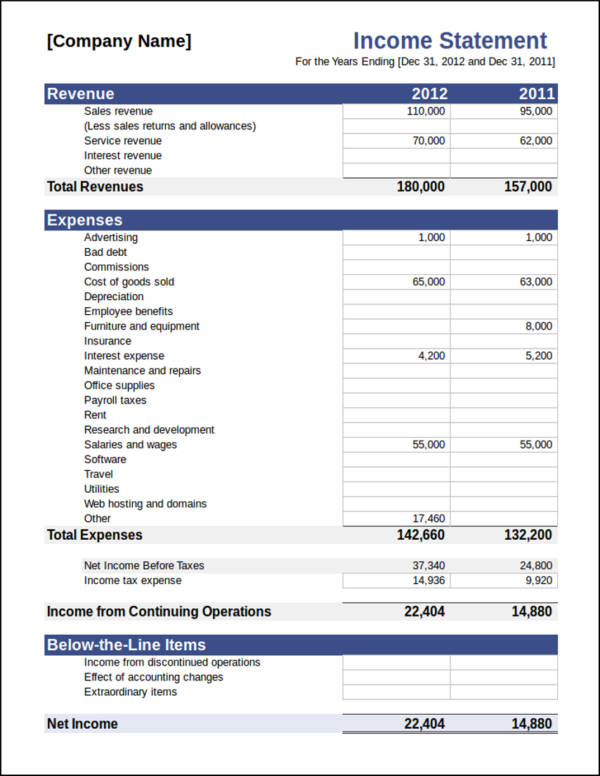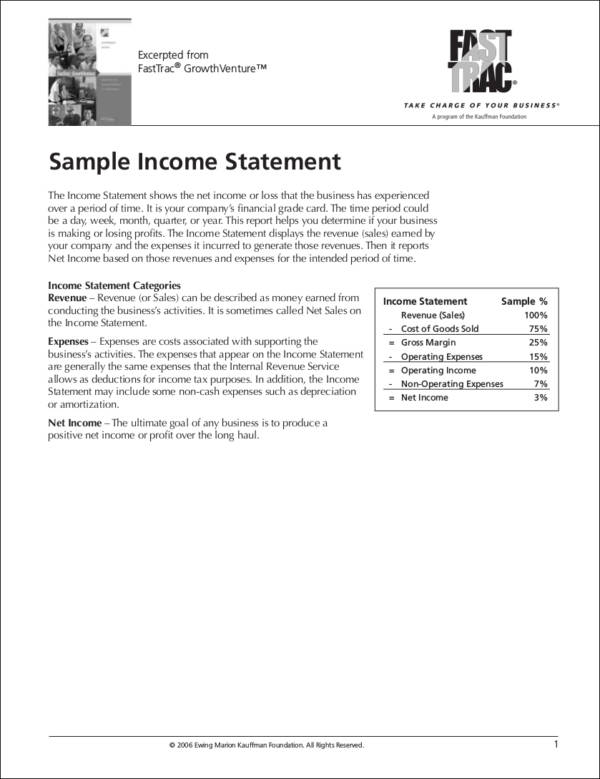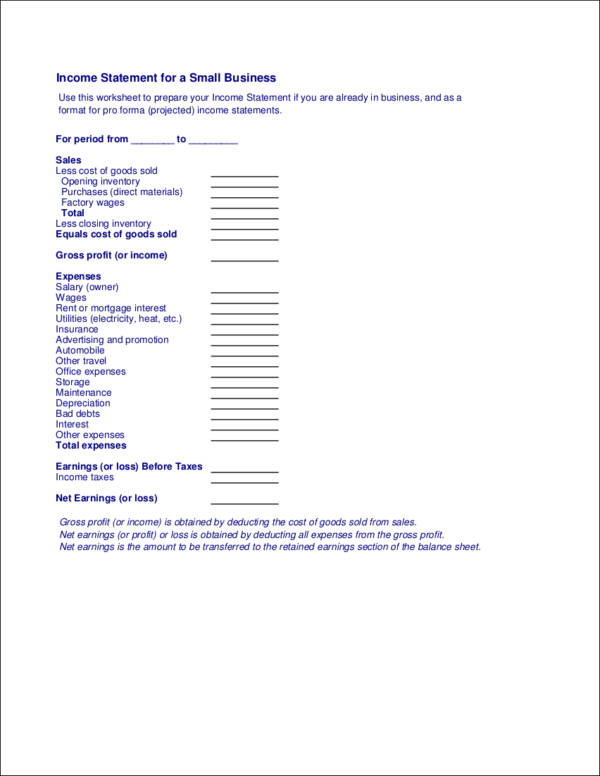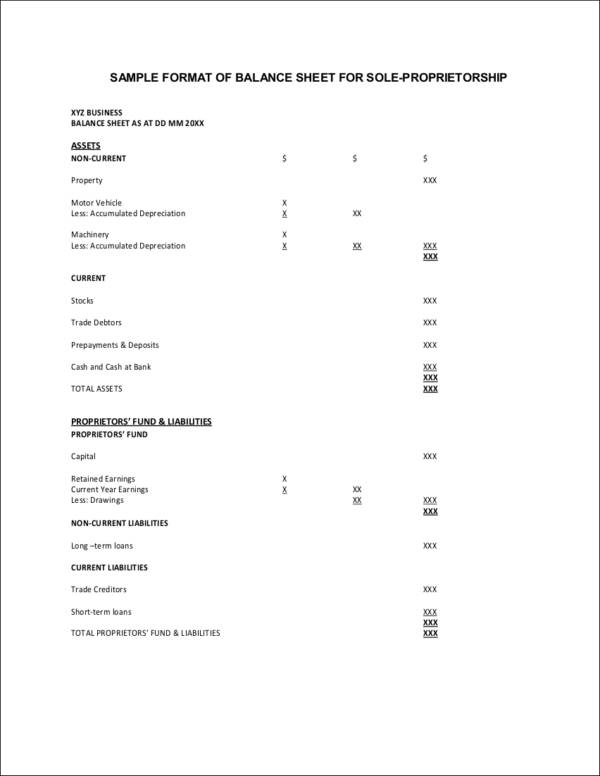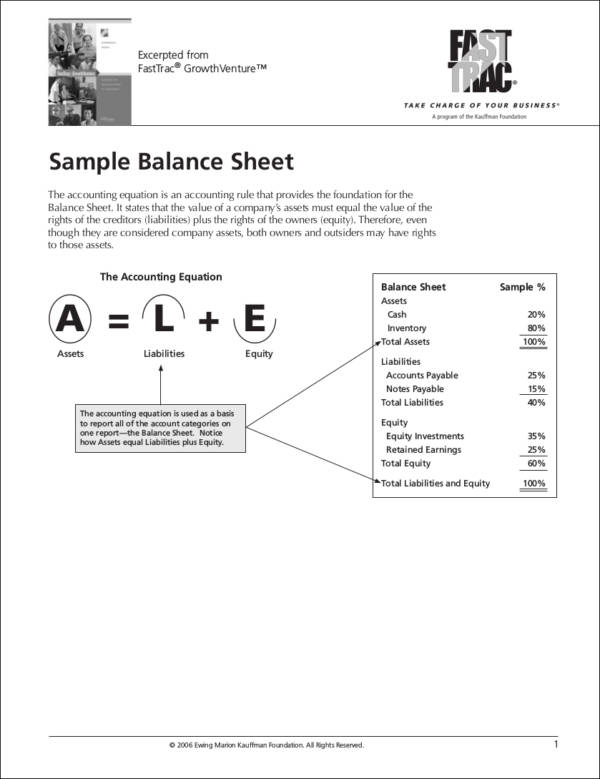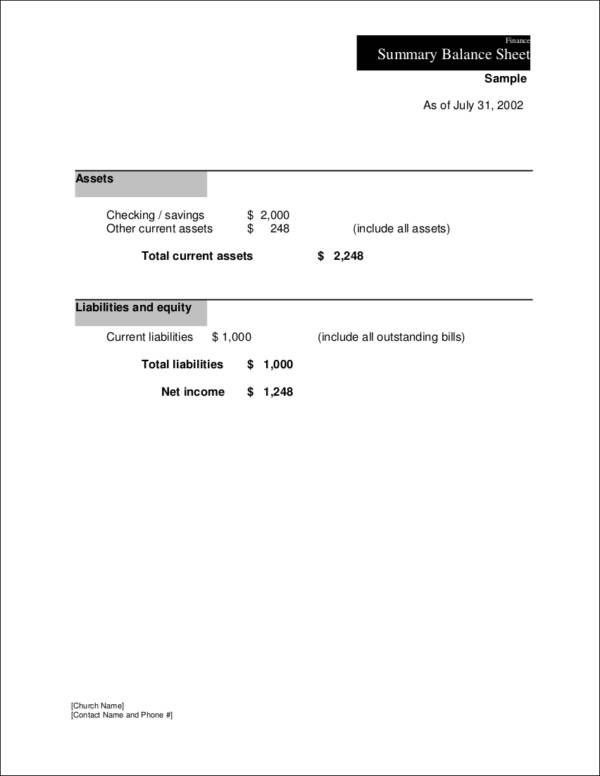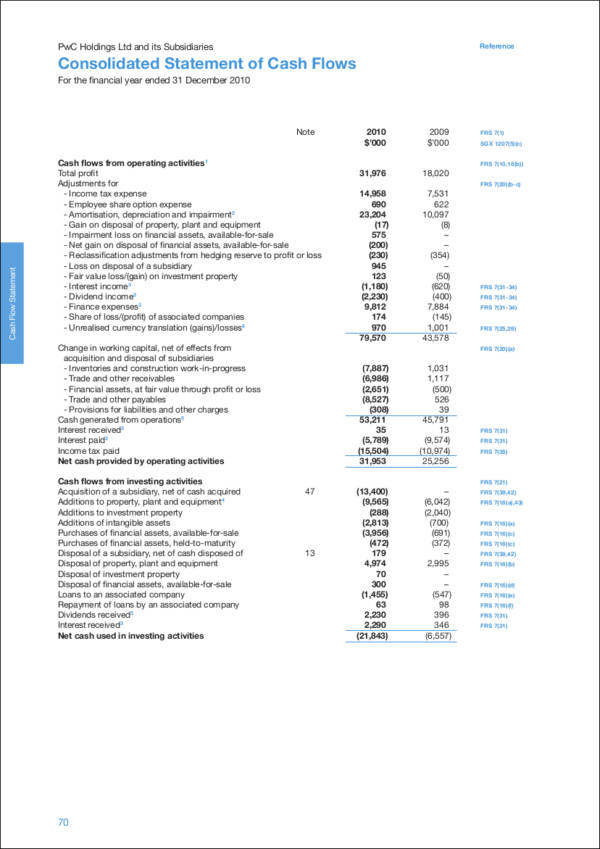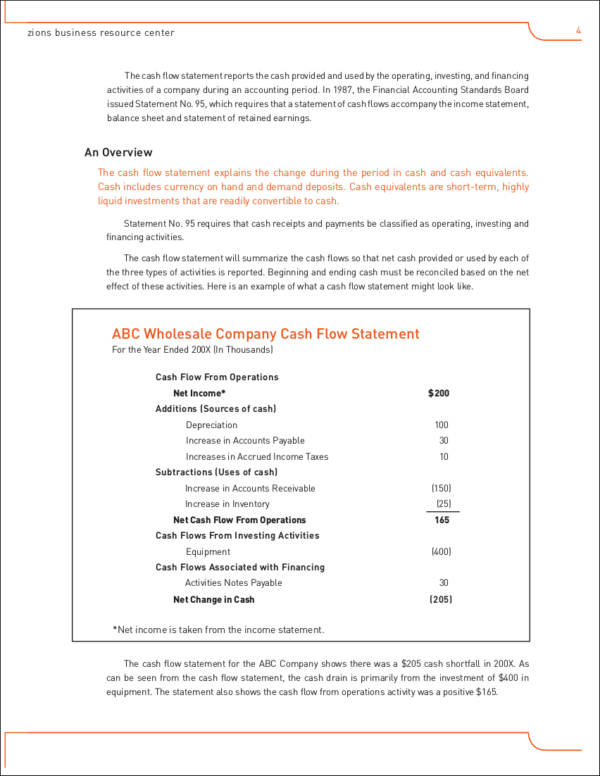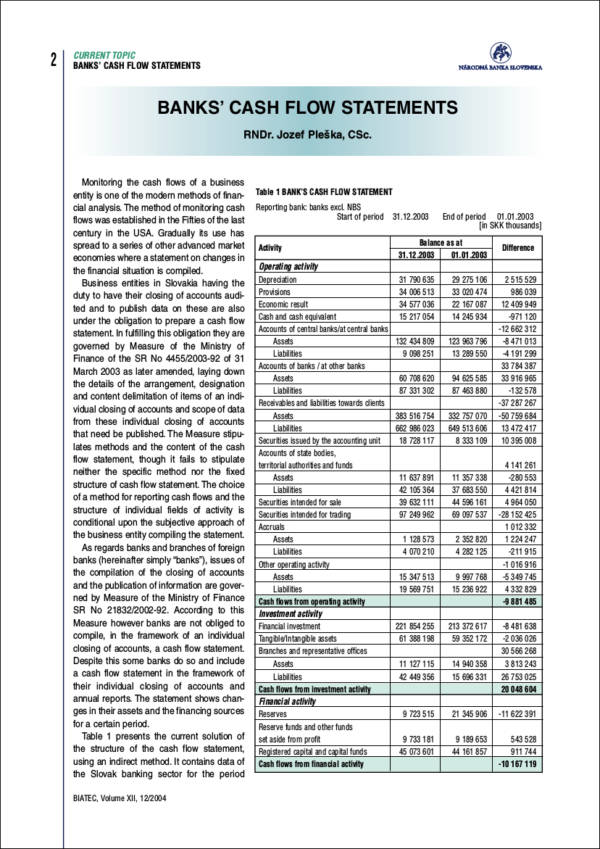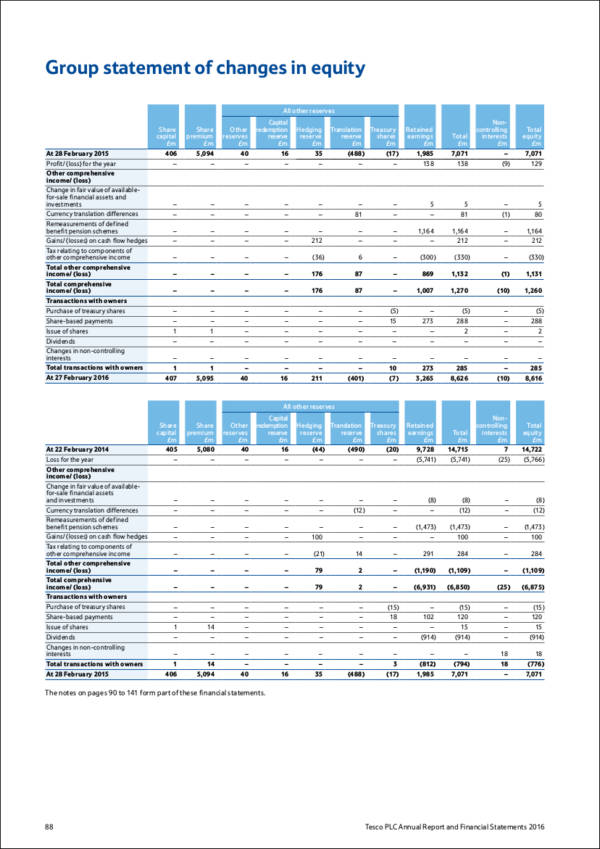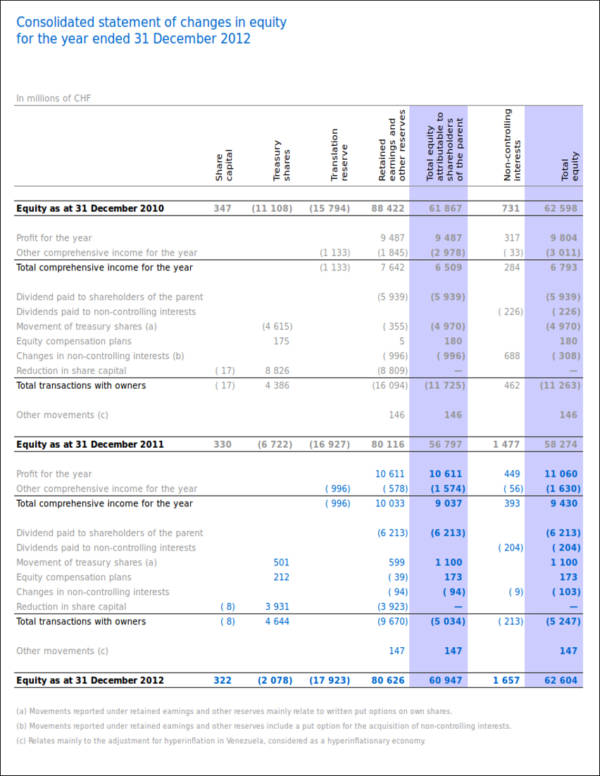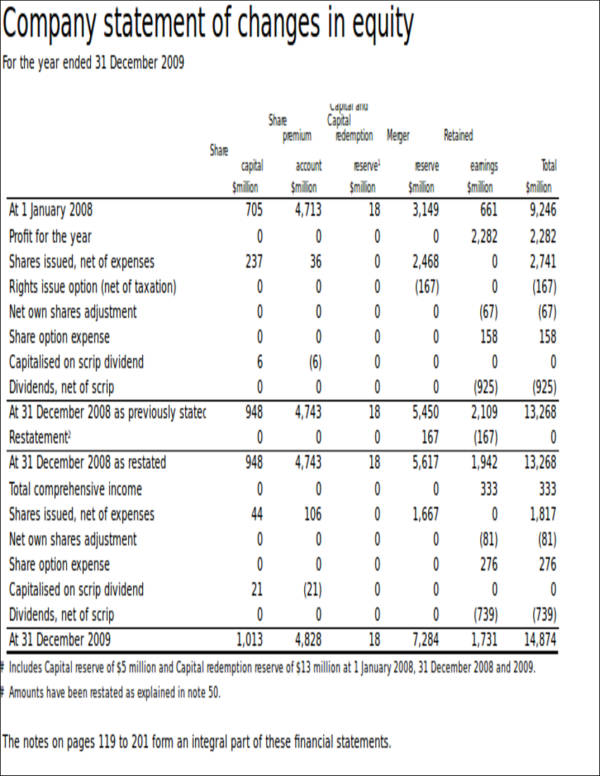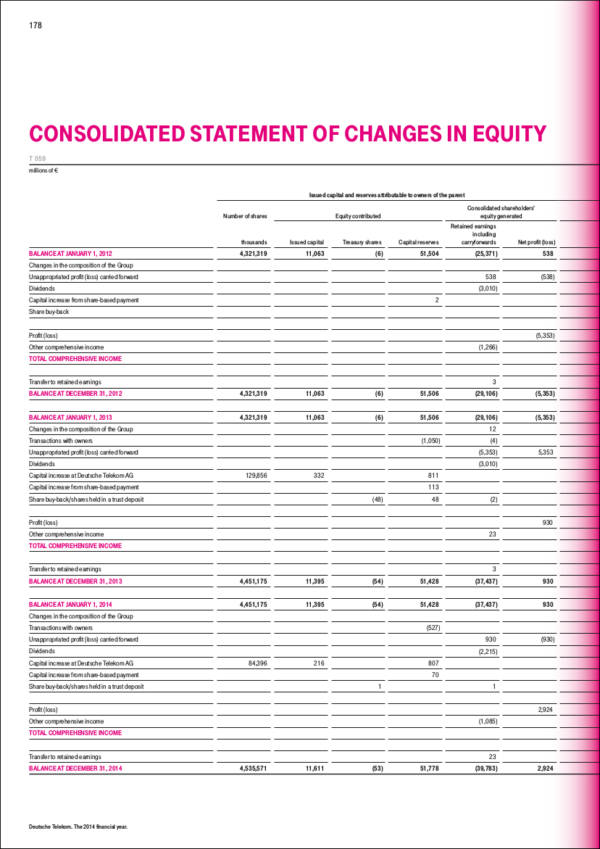When it comes to your company, you want to ensure that you are financially healthy and are currently on the right path to success. To help you do this, you need to take a look at your financial statements. Your financial statement will help you determine where your company currently stands financially. These reports should be organized and updated on a regular basis to make sure that you will also be updated with the current status of your company.
If you are someone who is just starting out with his/her business, then you have come to the right article. We will let you know what are the basic financial statements every business needs to know about. Plus we have included a few statement samples that can help you gain a better understanding of what these financial statements are. You might not be the one who will make your financial statements as you might get an external accountant for that. However, it will be great to actually have an idea about the basics of these statements and some of the terms used in these documents. Keep on reading!
Income Statement Samples
Income Statement Template
Sample Income Statement
Income Statement for a Small Business
Balance Sheet Samples
Sample Format of Balance Sheet for Sole-Proprietorship
Sample Balance Sheet
Summary Balance Sheet Sample
What Is a Financial Statement?
A financial statement is basically a record of the financial transactions of an individual, business, or an entity. It also reflects what the current financial position of a firm or individual is.
On a regular basis, accountants are the ones who are always facing these statements. The accountants will be the ones to come up with the financial report that will be used by companies in making crucial decisions for the benefit of their respective firms.
Types of Financial Statements
There are four types of financial statements.
Income Statement
Income statements are financial statements that show the expenses and the revenues of a company for a certain period of time. It reflects how revenues (or the company’s income) become the net income of the company after expenses have also been accounted for. Basically, the purpose of an income statement is to let investors and managers know whether the company has lost or gained money.
So what are the common terms that you would usually find in an income statement?
- Net income. The net income of the company is the total profit garnered by the company. It is computed by subtracting the operating expenses and taxes from the revenue.
- Gross profit. The gross profit refers to the profit that a company makes after subtracting the cost of the goods sold. Basically, it is Net Sales ? Cost of Goods Sold.
- Income bond. Income bonds are a type of debt security wherein the value of the item or service is promised to be paid to the investor. In short, it is a debt instrument where coupon payments are made if the entity that issued the coupon can afford to pay it.
Balance Sheet
A balance sheet is a financial statement that summarizes the assets, liabilities, and equity of the firm for a specific time frame. Typically, a balance sheet will have all of the assets on the left side whereas, on the right side, you will find all the liabilities and owner’s equity.
What are considered to be assets? Some of the most common assets you will find in a balance sheet are the following:
- Cash and other items equivalent to cash (cash equivalents)
- Receivables
- Inventory items
- Prepaid expenses
- Property and equipment
- Trademarks
- Patents
Liabilities can either be current liabilities or long-term liabilities. Current liabilities are obligations that are payable after one year of the balance sheet due date. On the other hand, long-term liabilities are obligations that are not payable within a balance sheet’s due date. What are considered to be liabilities?
- Payables
- Customer deposits
- Unearned revenues
- Warranty liabilities
- Costs
Equity refers to the investments made by the owner/s of the firm. One of the most common equities you will see on a balance sheet is the owner’s equity.
Statement of Cash Flows
Statement of cash flows document the changes that occur during the accounting period. This document is also known as the cash flow statement. This document will reflect how the changes in the balance sheet make a difference to cash and its equivalents.
The cash flow in this document are categorized into three:
- Operating activities
- Investing activities
- Financing activities
Statement of Changes in Equity
Just like its name suggests, the statement of changes in equity takes note of the changes that happen to a firm’s equity during an accounting period. Such changes might be due to the following:
- Share purchases
- Issued dividends
- Profits or losses
Cash Flow Samples
Consolidated Statement of Cash Flow Sample
Company Cash Flow Statement
Bank Cash Flow Statement
Statement of Changes in Equity
Group Statement of Changes in Equity
Full Year Statement of Changes in Equity
Company Statement of Changes in Equity
Consolidated Statement of Changes in Equity
Why Is Preparing Financial Statements Important?
You might somehow find yourself wondering if preparing financial statements are important to a business. Do you want to know why? Simply because they serve as a proof, not only to the shareholders and government agencies but to yourself as well, whether your firm is doing fine or otherwise. It can also aid in determining which areas of the firm you might want to focus more on.
In what ways do financial statements help a company?
Determine areas that are costly.
Costly mistakes are definitely something you would want to avoid in the company. Who would want to put a lot of money on something that does not even really make that much money, right?
Once you have a good idea which parts of the business is currently eating up a ton of unwanted costs, you will be able to come up with a better budget plan and a better strategy of how you can cut costs.
Tax time will not be as stressful.
When you prepare your financial statements according to your company’s timetable, you will not be that worried about filing your taxes as you have all the information you need in an organized manner. You should take a look at free timetable samples and make your very own if you do not have any for your firm yet. You want to make sure that you have a document to present come April 14.
Payment schedules can be followed.
You want to make sure that the accounts receivables you have will be received in a timely manner. You will also be able to check the payables you have at the moment to ensure that all of your payments are made on or before its due date.
Can help you make better financial decisions for your company.
Financial decisions are crucial business decisions and they need careful analysis. Referring to your financial statements can help determine whether what you are doing will have a positive or negative effect on the cash flow of your company. It can also help you determine if you will be able to afford to invest more capital or if you can invest in stocks to help your money grow. Financial statements can help give you a clear direction about where your money is at the moment.
Financial reports are definitely a great means of helping you keep a record of how you are doing—whether you are currently losing or gaining revenue. You can easily determine whether you can expand or if you need to close your company down. It can also help you determine whether you have extra money that you can use for further investments or for other important expenditures that you may have in the future. Through financial reports, you may also be able to have a rough estimate of what your financial status will be if your current trend will continue.
We are hoping that we have helped you out with identifying what the uses of the different financial statements are. We also hope that you now have gained a better idea as to why financial statements are important to prepare. A company will definitely have a better chance of becoming successful should they know where they should refer to and financial statements are one of them. Conserving and spending your money will not be such a daunting task with the right tools. We wish you the best of luck in your business ventures and we are hoping that your company’s success is right around the corner!
Related Posts
FREE 10+ Scholarship Statement of Purpose Samples in PDF | DOC
FREE 10+ Engineering Problem Statement Samples [ Software, Mechanical, Civil ]
FREE 30+ Information Statement Samples in PDF | MS Word
FREE 50+ Policy Statement Samples in MS Word | Google Docs | PDF
FREE 50+ Summary Statement Samples in PDF | MS Word
FREE 10+ Nursing School Personal Statement in PDF
FREE 9+ Mortgage Statement Samples and Templates in PDF
FREE 10+ Independent Subcontractor Statement Samples in MS Word | Google Docs | Apple Pages | PDF
FREE 10+ Trust Distribution Statement Samples in PDF
FREE 14+ Compliance Statement Samples & Templates in PDF | MS Word
FREE 10+ Extension Impact Statement Samples in PDF | DOC
FREE 10+ Bank Reconciliation Statement Samples and Templates in PDF | MS Word
FREE 10+ Diversity Mission Statement Samples in MS Word | PDF
FREE 10+ Architecture Statement of Purpose Samples [ Sustainable, Graduate, Master ]
FREE 13+ Project Scope Statement Samples in PDF | MS Word

